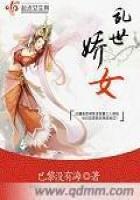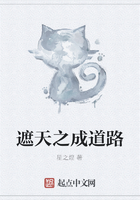Nor does English history supply less conclusive evidence of theintimate connection subsisting between a nation's general politicalpolicy and political economy.Clearly the rise and growth ofmanufactures in England, with the increase of population resultingfrom it, tended to create an active demand for salt fish and forcoals, which led to a great increase of the mercantile marinedevoted to fisheries and the coasting trade.Both the fisheries andthe coasting trade were previously in the hands of the Dutch.
Stimulated by high customs duties and by bounties, the English nowdirected their own energies to the fishery trade, and by theNavigation Laws they secured chiefly to British sailors not onlythe transport of sea-borne coal, but the whole of the carryingtrade by sea.The consequent increase in England's mercantilemarine led to a proportionate augmentation of her naval power,which enabled the English to bid defiance to the Dutch fleet.
Shortly after the passing of the Navigation Laws, a naval war brokeout between England and Holland, whereby the trade of the Dutchwith countries beyond the English Channel suffered almost totalsuspension, while their shipping in the North Sea and the Balticwas almost annihilated by English privateers.Hume estimates thenumber of Dutch vessels which thus fell into the hands of Englishcruisers at 1,600, while Davenant, in his 'Report on the PublicRevenue,' assures us that in the course of the twenty-eight yearsnext following the passing of the English Navigation Laws, theEnglish shipping trade had increased to double its previousextent.(5*)Amongst the more important results of the Navigation Laws, thefollowing deserve special mention, viz.:
1.The expansion of the English trade with all the northernkingdoms, with Germany and Belgium (export of manufactures andimport of raw material), from which, according to Anderson'saccount, up to the year 1603 the English had been almost entirelyshut out by the Dutch.
2.An immense extension of the contraband trade with Spain andPortugal, and their West Indian colonies.
3.A great increase of England's herring and whale fisheries,which the Dutch had previously almost entirely monopolised.
4.The conquest of the most important English colony in theWest Indies -- Jamaica -- in 1655; and with that, the command ofthe West Indian sugar trade.
5.The conclusion of the Methuen Treaty (1703) with Portugal,of which we have fully treated in the chapters devoted to Spain andPortugal in this work.By the operation of this treaty the Dutchand the Germans were entirely excluded from the important tradewith Portugal and her colonies: Portugal sank into completepolitical dependence upon England, while England acquired themeans, through the gold and silver earned in her trade withPortugal, of extending enormously her own commercial intercoursewith China and the East Indies, and thereby subsequently of layingthe foundation for her great Indian empire, and dispossessing theDutch from their most important trading stations.
The two results last enumerated stand in intimate connectionone with the other.And the skill is especially noteworthy withwhich England contrived to make these two countries -- Portugal andIndia -- the instruments of her own future greatness.Spain andPortugal had in the main little to dispose of besides the preciousmetals, while the requirements of the East, with the exception ofcloths, consisted chiefly of the precious metals.So far everythingsuited most admirably.But the East had principally only cotton andsilk manufactures to offer in exchange, and that did not fit inwith the principle of the English Ministry before referred to,namely, to export manufactured articles and import raw materials.
How, then, did they act under the circumstances? Did they restcontent with the profits accruing from the trade in cloths withPortugal and in cotton and silk manufactures with India? By nomeans.The English Ministers saw farther than that.
Had they sanctioned the free importation into England of Indiancotton and silk goods, the English cotton and silk manufactoriesmust of necessity soon come to a stand.India had not only theadvantage of cheaper labour and raw material, but also theexperience, the skill, and the practice of centuries.The effect ofthese advantages could not fail to tell under a system of freecompetition.
But England was unwilling to found settlements in Asia in orderto become subservient to Asia in manufacturing industry.She strovefor commercial supremacy, and felt that of two countriesmaintaining free trade between one another, that one would besupreme which sold manufactured goods, while that one would besubservient which could only sell agricultural produce.In herNorth American colonies England had already acted on thoseprinciples in disallowing the manufacture in those colonies of evena single horseshoe nail, and, still more, that no horseshoe nailsmade there should be imported into England.How could it beexpected of her that she would give up her own market formanufactures, the basis of her future greatness, to a people sonumerous, so thrifty, so experienced and perfect in the old systemsof manufacture as the Hindoos?
Accordingly, England prohibited the import of the goods dealtin by her own factories, the Indian cotton and silk fabrics.(6*)The prohibition was complete and peremptory.Not so much as athread of them would England permit to be used.She would have noneof these beautiful and cheap fabrics, but preferred to consume herown inferior and more costly stuffs.She was, however, quitewilling to supply the Continental nations with the far finerfabrics of India at lower prices, and willingly yielded to them allthe benefit of that cheapness; she herself would have none of it.















